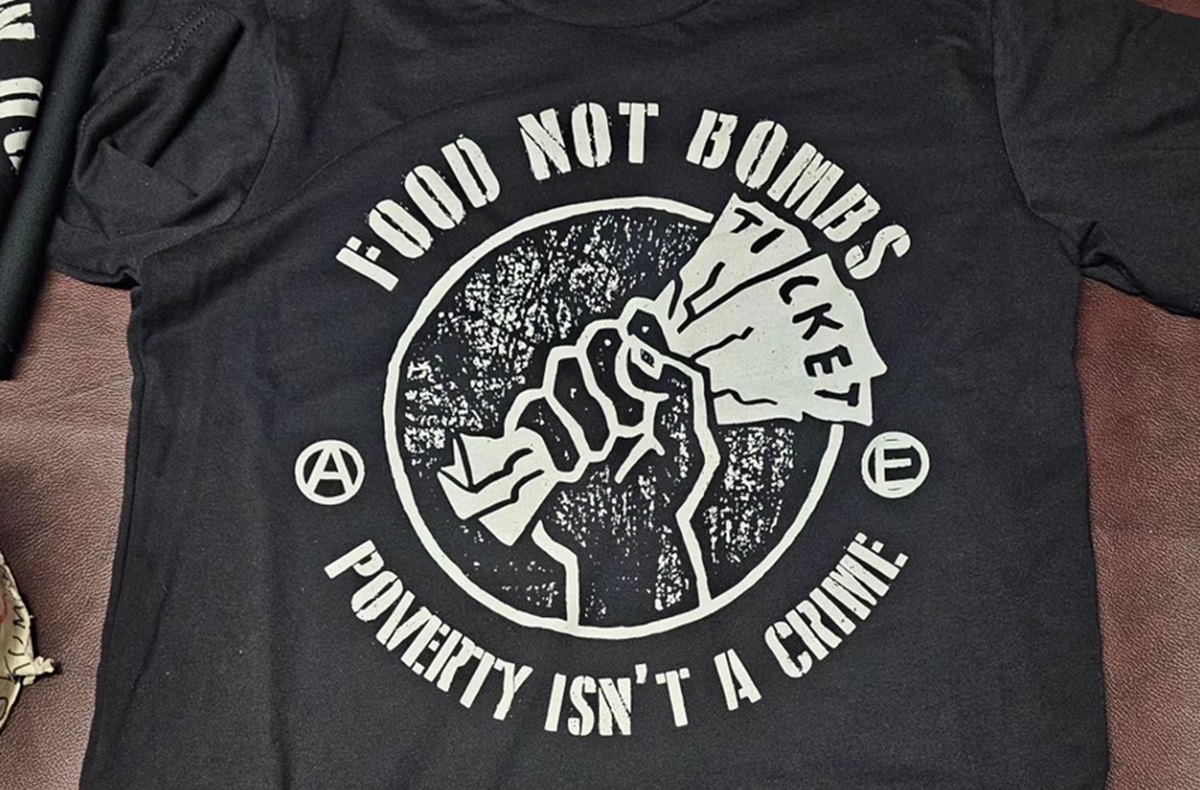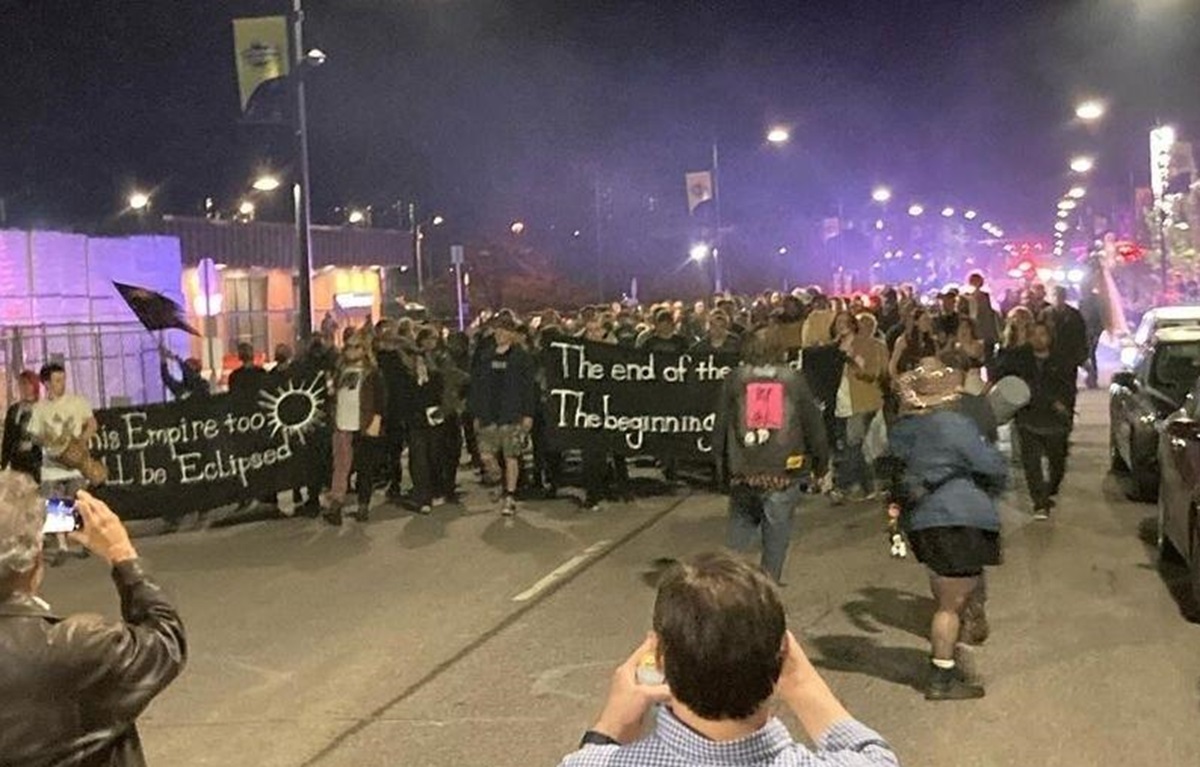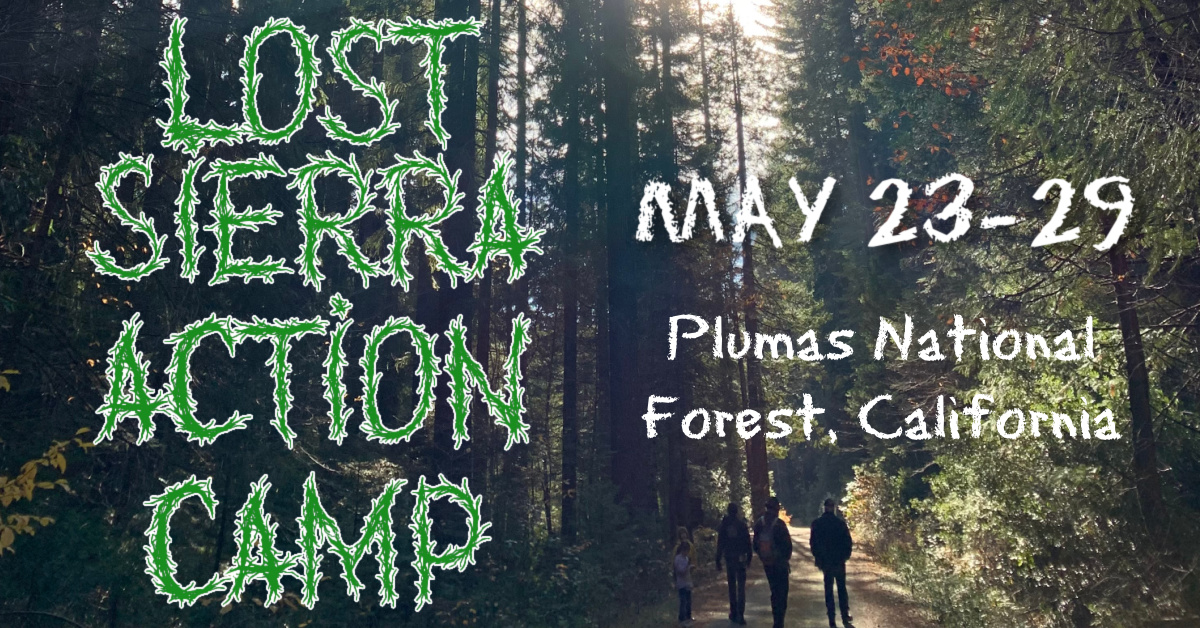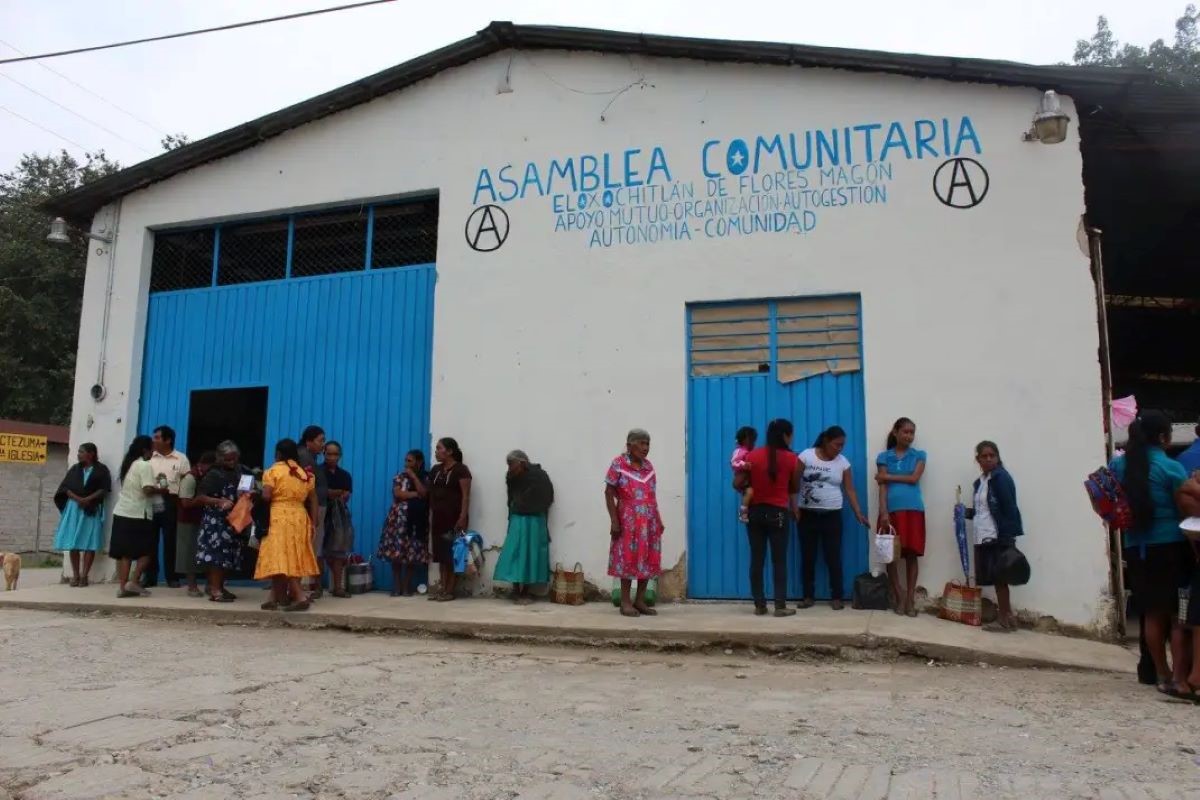Filed under: Anarchist Movement, Anti-fascist, Featured, Health Care, Incarceration, Interviews, Political Prisoners
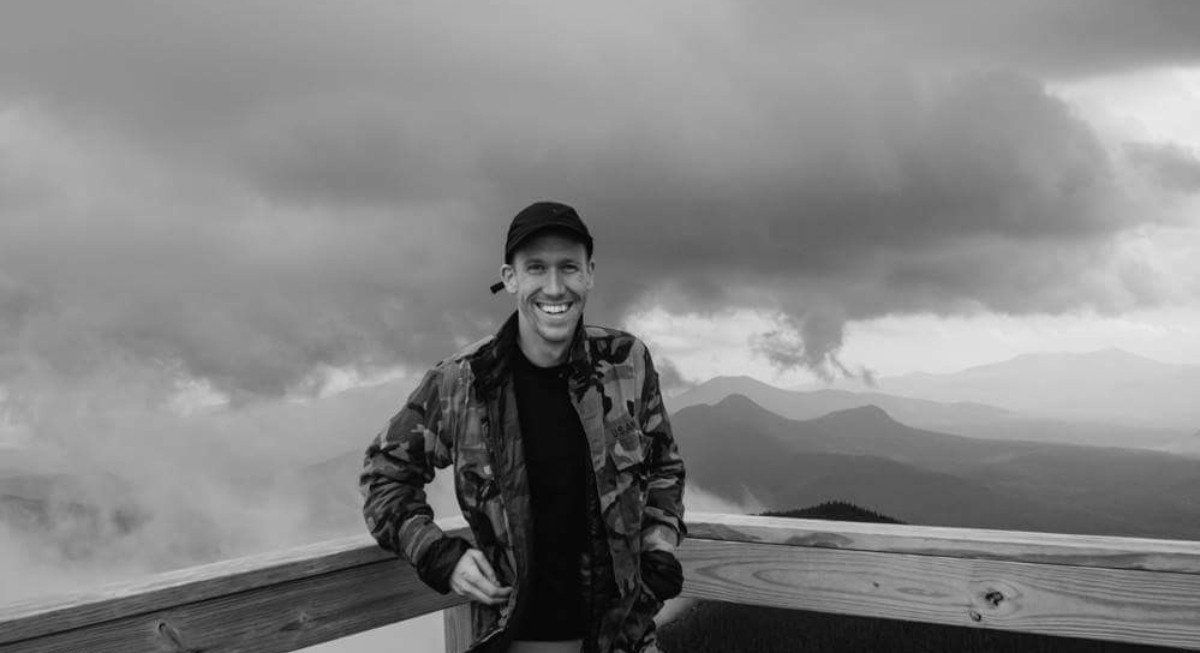
An interview and reflection from the support committee of David Campbell, an antifascist prisoner in the New York area who was recently released.
David Campbell is an anti-fascist activist and former anti-fascist political prisoner who served 12 months at Rikers Island in New York. Here, David and a few other members of the Defense Committee reflect on the committee, with the intention of sharing lessons and possibilities from lived experience with those facing down terrifying charges and those who want to support them. This conversation began with a letter received from David in June 2020, when he was serving the last third of his sentence. The responses of the other Defense Committee members were compiled shortly after. You can find out more about who David is and why he was incarcerated here.
This interview has been lightly edited for length and clarity.
How did the Defense Committee form?
David: It happened kinda naturally because I already knew some people in the anarchist scene. A lot of people were reaching out to me after my arrest to see how I was doing and if I needed help with stuff like laundry and groceries, since my leg was broken when I was arrested, so I couldn’t really get around. People would come by to visit too, and one time a bunch of people came over and we cooked and ate a big dinner together. That turned into a regular thing and when my case started heating up a few months later and the idea to form a defense committee came up, that group formed the core of the defense committee. I asked each person individually if they’d be down to help me navigate my court case and tried to convey that it was totally OK for them to say no or take time off later, since it could be a lot of work. Everyone I asked said yes, which was super cool. I asked a few older, more experienced activists we knew, my brother, and a close friend of 15 years (neither of whom are anarchists) to join as well. Later, a couple others joined, including my therapist and my best friend growing up.
T: Before David’s arrest, I knew David in passing through anarchist circles—we were friendly but not yet friends. After he was arrested and injured by the police, a small group of us reached out to David and offered to come by his apartment to have a little potluck dinner. I think these kinds of small acts of support can go a long way in building relationships and trust. A few months later, David asked us if we would be part of his defense committee, and we all agreed.
SUPPORT ANTIFA PRISONERS – WRITE DAVID CAMPBELL pic.twitter.com/ZSyOr0FtYk
— 1312press (@1312press) July 15, 2020
DIO: I had known David for a while before the arrest. We lived in the same neighborhood and would work together on various street actions. When David was arrested I was on the scene providing jail support. It seemed obvious to me that I would continue to provide support throughout his case, whatever the outcome, so I did.
Carmichael: I already knew David for about a year before he was arrested, we met in an ultimately sidelined effort to organize neighborhood response teams to address xenophobic and Islamaphobic harassment that was becoming more obvious during Trump’s election campaign. It turned out we were neighbors, and we saw each other at a lot of other political organizing meetings and low-key anti-ICE actions.
I had been involved in prisoner support through NYC Anarchist Black Cross (ABC) letter writing events, Metropolitan Coordinating Council (MACC) legal, and J20 defense, and I’ve had friends go to prison before. So I of course wanted to do anything I could to help when David needed a support committee. And I was livid to hear he’d not only been arrested at a protest but had his leg badly broken by the police.
From David Campbell’s support committee: David was released yesterday early in the morning and is HOME safe and sound. Donate to his post-release fund here https://t.co/0I7XKkTG70. #supportpoliticalprisoners #davidcampbell pic.twitter.com/GuyYuqHoFo
— NYC ABC (@nycabc) October 17, 2020
M: David approached me and asked if I would be willing to join. I was so flattered to be considered and accepted immediately. Prior to this, we did a few group dinners and drinks for him and I think that helped him to feel supported.
N: I was in very loose proximity to David’s arrest and the circumstances surrounding it. I knew the people who started the defense committee and was invited into it. I didn’t know what a defense committee really was before joining, only that it’s something that had been done for political prisoners in the past to facilitate fundraising and letter writing, etc.
What did a normal defense committee meeting look like before sentencing?
David: We’d usually meet at someone’s house, maybe with some snacks, drinks, or sometimes a full-blown dinner. I’d bring everyone up to speed about my case, if there were any new developments – what my lawyer had told me, what the prosecutor had told them, possible outcomes and time frames, when the next court date was and what it was for. Others would report back about the various things they were working on. One person would take notes in a shared doc. Before we broke, we’d make sure there was someone to bottom-line each action item, and set the date, time, and place of our next meeting. Meetings usually lasted about one and a half hours.
N: We’d talk through the issues of the week, and decide who would be responsible for what by the end of it. Only about once did we ever have a meeting where David was absent before he got taken in. It was also important to spend time with one another that was based on having fun and hanging out, maybe over drinks or with a board game or something.
T: We would discuss potential legal and media strategies and possible outcomes. We also planned for the possibility of David’s incarceration. Though we very much hoped this would not be the ultimate outcome, we wanted to be well prepared so we would not be left scrambling at the last minute. The preparatory work included, but was not limited to: setting up a support website (including a statement on David’s case, visitation info, a form to submit letters, a list of topics David would be interested in corresponding about, a list of books David would be interested in receiving, etc.), planning fundraising efforts and setting up the necessary financial infrastructure, making a plan for facilitating visits, and thinking about how to support David post-release. We made sure that each necessary task had one or more bottom-liners.
For the weeks immediately following sentencing, the committee met frequently as we navigated the specifics of supporting David throughout his incarceration. We reported back on our experiences visiting David at Rikers, noting any problems that we encountered so we could relay this information to future visitors. Following this initial burst of activity, we transitioned to meeting monthly over dinner or drinks to check in and discuss any significant actions, such as fundraising efforts, but most of our work took place over our Signal loop. After COVID-19 hit NYC, we had one video meeting to plan our efforts to get David released from Rikers. Otherwise, we’ve continued to coordinate over our Signal loop.
Here is a statement released by the prisoners at Rikers jail in NYC who have gone on strike in protest of the worsening conditions due to #COVID19
We'd like to remind everyone that David Campbell, an antifascist prisoner is locked up at Rikers as well. https://t.co/6vz8FrYD5A pic.twitter.com/ZpmN8GkBzz
— Antifa Sacramento (@AntifaSac_) March 22, 2020
DIO: We’d get updates on whatever tasks had been completed and determine what still needed to be done. We’d make sure every task has a bottom-liner so nothing fell through the cracks.
Carmichael: Before he was taken into custody we did a lot of hypothetical planning, not knowing for a long time whether or not he’d even have to do time. Once he was in, we divided up the work that needed to be done and met a lot less. Now because of Covid we don’t meet at all but we talk every day by Signal.
M: They were long, but organized and smooth meetings. The bulk of our work was really leading up to David’s incarceration. We still have people who bottom-line specific things and that have for a while, so there is less of a need for regular, more formal, meetings.
What sort of actions did people take while you were still fighting the case? What were you responsible for?
David: They were constantly checking in to see how I was doing and meeting up to socialize so I felt less alone. People researched all kinds of random stuff that might help, researched facilities I might be sent to if sentenced, kept an ear to the ground for news that might affect the way my case was handled. We even met with my lawyer, with their consent of course.The defense committee ensured that someone was handling fundraising, media stuff, online presence (including buying a domain in advance in case I ended up doing time). They put me in touch with a radical therapist, a sympathetic journalist, a half-dozen former political prisoners (including one who’d done time at the facility I was ultimately sent to), self-defense and meditation trainers, all of which were enormously helpful. They also took time off from work and school to show up in support at my court appearances, helped me move and store my stuff before I went in, and packed the courtroom on the day I was sentenced.
T: Because the tasks I volunteered to bottom-line would only begin in the event of David’s incarceration, the actions I took while David was still fighting the case mostly included showing up to defense committee meetings and court dates. After the court dates, a group of us would usually go to a nearby coffee shop to decompress, debrief, and hang out for a bit. Afterwards, one of us, usually David, would send a summary of the court proceedings to our defense committee signal loop.
DIO: My primary responsibility was technical support. I built the website and set-up various email accounts for the committee to use.
Carmichael: When he was still fighting the case we did research on where he might be taken and what kind of sentence he might have, we raised some money for him, and talked a lot about hypotheticals and questions: would we sublet his room, could he defer doing his taxes, could he travel beforehand, could he travel after, would it be better to do a short amount of time with a long probation or a longer time with no probation…we were there for emotional support and to help grapple with these questions. I like to host and cook for everyone, I did some of that back then. The most important thing is to show up for people even if you don’t have the skills to do more. I’m not a lawyer but I could help with things his lawyers couldn’t.
M: I think I took on more of an emotional support role during this time. I would meet with David regularly to hang out and talk about how he was doing. I wasn’t always sure how to be most useful with so many exceptional and skilled group members, but felt I could always offer my time and support.
N: I would mostly attend court dates and research circumstances of the arrest, thinking a lot about the narrative that should be forwarded to the larger world that would result in the most lenient sentencing. I also organized a couple of our meetings. The work picked up much more once he was inside. There were always at least about a dozen of us, so many hands made little work, except for that work which required some expertise (website design, legal knowledge, etc.).
What does support look like now?
David: Keeping my commissary account full with money from their continued fundraising efforts, visiting me regularly and organizing a visiting schedule for others, helping first-time visitors through the process, taking my calls at all hours of the day [which was necessary because of the limited access to phone calls, only two every three hours], writing me letters and forwarding my international mail and messages from the website, speaking to the media and just generally being awesome. They also stay in touch with my lawyer, send me any clothes, books or other materials I might request, and manage the website, including posting my updates. They’ve also helped immensely with a translation project I’m working on. Since the pandemic hit, they’ve invested a huge amount of time into trying to get me out, including organizing call-in and email campaigns.
T: After David’s sentencing, I was one of several people bottom-lining David’s visitation schedule and corresponding with visitors. Rikers has an absurd visit system, so this definitely needed some upkeep, particularly in the beginning when people were still figuring out how everything worked. Once COVID-19 hit NYC, all visits were suspended indefinitely. The new video visits require less upkeep, mostly because the seemingly random video visit process is impossible to coordinate.
With an end to the Covid crisis nowhere in sight, millions of people still languish in squalid cages in the United States alone. David Campbell, a political prisoner stuck on Rikers Island, reflects on a successful strike against these conditions: https://t.co/GLdvsVXzoD
— Hard Crackers: Chronicles of Everyday Life (@Hard_Crackers) July 10, 2020
Prior to COVID-19, I was also responsible for printing and forwarding letters to David that we received through the support site, as well as forwarding David’s international correspondence. Due to unanticipated circumstances related to COVID-19, this responsibility has since been taken on by another committee member.
Though these two roles were what I originally volunteered to take on prior to David’s incarceration, there are always new circumstances and new needs. I think this defense committee has been very skilled and efficient in responding to changing circumstances and taking on whatever tasks need doing moment to moment. Some things I’ve worked on since David’s incarceration include: transcription and research for David’s translation work, tabling at a fundraiser, helping move some of David’s possessions into storage, researching NYC’s completely opaque COVID-19 release policy, and compiling and contacting a list of supporters to advocate for David’s early release due to the COVID-19 pandemic. I think laying the groundwork for supporting David in the event of his incarceration early on allowed the committee to more easily respond to unanticipated needs—big and small—as they arose.
DIO: Now I maintain the website. I post updates when I get them from David, and make any and all changes the committee wants.
Carmichael: Now I answer some of the emails, forward letters to him, or scan his letters and email them to their destinations. I’ve been scanning a book that he’s translating: others are doing the transcription and editing, it’s great that we have a big team. I helped run the visitation calendar for a while and I talked to media and other prisoner support groups when we were advocating for his release (and a general release) when the pandemic began. Since Covid shut down visitations, I no longer help coordinate that calendar or visit regularly, I just try to send a lot of mail and do televisitation when I can. We’re starting to think about what he’ll need when he gets out, I think that’s 99 days from today.
M: I used to make it to Rikers once a month if not more, just to make sure he had consistent visits. Now, I wait excitedly for his phone calls and schedule monthly televisits just to see how he is doing. He has playfully told me I have written too many letters to respond to, but also it is important to make sure he has regular mail. I also work on transcribing the book he is translating. With so much going on, that is at least something to do that selfishly helps me feel useful in some small way. We have also worked on various call-in campaigns for him and I have made countless phone calls to Rikers and the DOC on his behalf (at one point being chastised by the DOC for calling over fifteen times to advocate for him on a specific issue).
N: Mostly just staying in touch! Occasionally responsibilities become apparent to the group that need to be taken up, maybe such as putting this document together, but we prepared very intentionally and very well before the beginning of David’s sentence such that the vast majority of the work has to do with maintaining the project itself.
What sort of strengths and skills do people bring to the group?
David: Patience, level-headedness, knowing me well, knowing radical history well, connections to the anarchist community. Our group also has social workers/therapists, one person who has done time and is in their third year of law school, techies, and my brother, who I was able to toss around my craziest ideas and deepest concerns with.
DIO: My day job is programming so I was happy to use those skills for something that directly benefits someone I care about.
M: I think the beauty of this committee is that we all brought such different but compatible skill sets to the table. Maybe that is why he asked us all to come together. We had care workers, friends, comrades, experienced organizers with specialized knowledge in things such as the law or skills related to technology and web design. Everyone is so smart, organized, and dedicated to the cause. It never felt like labor to support our friend.
I am a social worker working as a therapist in my field. This was my first time being a part of a defense committee, let alone such an efficient and successful one. I took on smaller tasks, such as making phone calls, ordering books and mailing legal pads. I suppose I used my background in the sense of trying to provide consistent emotional support to David. That felt important to me.
What were the most successful fundraising efforts? Least successful?
DIO: Fundraising through our networks proved to be really effective and we quickly raised enough money to support David’s commissary. We also had a comrade, not part of the committee, put on a punk show to collect donations which was also very successful. We haven’t had to do any other fundraising besides that.
M: The punk show for his post-release fund made a lot of money, and was amazing to see. The call for regular monthly donations through our website brought in a great deal of funds to help us manage his commissary needs and more. People have really showed up for David, and I think that says a lot about who he is as a person, and the fact that he has always shown up for others in the community.
Mark yr 🗓️ for this all-ages, sliding scale benefit show for local antifascist prisoner David Campbell!
》Saturday Jan 25 @ 8pm《
》284 Rodney St, Brooklyn 《Glad to cosponsor w/our neighbors in @nycabc @CosmosAFA @macc_nyc @NYC_SocialistRA and othershttps://t.co/TzkbzEbBHY pic.twitter.com/lDlohTuSeL
— Outlive Them NYC (@outlivethemnyc) January 13, 2020
N: From my perspective, the most money seemed to have come in the lead-up to and immediate aftermath of the sentencing. A lot of people came to the court that day, and became connected by giving us their contact info, such that so many of those people who felt directly connected (friends, family, community) were the ones to contribute the most. Not too sure if I could speak on the least successful.
How did the committee find people to come pack the court?
M: David has had such an impressive and wide array of supporters throughout this entire process. It was amazing to see and definitely warmed my heart. I think the work we did as a defense committee helped many others find digestible updates and concrete ways to support such as showing up for court dates. On the day of sentencing, our side of the court room was filled with people who called out “We love you, David” as he was escorted away.
N: Since David was part of a larger political community, it was relatively easy to pull people from that community who could come for the most important court dates. Otherwise, we ourselves would be the only ones present. There were many court dates at inconvenient times that were not as high stakes, so less people were needed during those.
Were there ever any conflicts within the committee? If so, why did they happen and were they resolved well? If not, what about the group dynamic do you think prevented conflict?
DIO: I don’t remember any conflicts coming up. Having David as a singular focus didn’t seem to leave room for much else, and everyone was just committed to helping in any way they could.
M: None that I am aware of. I think we all got along well from the start, some of us already knew each other from organizing circles, but some of us met for the first time through this committee for David. Everyone is so smart and talented and dedicated to both this cause and the general well being of David that we were always able to talk through our decisions and arrive at a consensus. Not only did we work well together, but also, it never felt like work to meet.
N: We didn’t have conflicts to the degree that other political projects might have had historically, ones that result in relationships torn and work neglected and such. Our dynamic was very easy and flexible, which I think in large part was intentional. We spent a lot of time and energy making meals together and things like that, but many of us also maybe retained a certain distance which allowed us to focus crucially on the tasks at hand. We are also a decently wide mix of David’s friends, and his brother, but mostly political community.
Were there any disagreements about the narrative around David’s case? How did they resolve?
DIO: Others could probably speak to this better than I could, but I do remember some back and forth on whether to describe David as more normie or more radical in his politics.
David Campbell and some members of his support committee pariticipated in a socially distanced #RunningDownTheWalls2020 this evening; from @la_abcf to running down the walls of Rikers Island: Solidarity to all political prisoners and prisoners of war. pic.twitter.com/ty2RLJcjz8
— MACC NYC (@macc_nyc) September 7, 2020
N: We spent a great deal of time going back and forth among one another about how the world should see David, depending on whose support we thought we could get. Should we appeal more to liberals or radicals? Who are these people and what makes them sympathetic or not? That seemed to be a major subject of debate that was resolved with David’s best interests and his own input in mind. We always default to what David wants to do, because it is always his decision, but that doesn’t mean we couldn’t spend a lot of time working through an issue together as a group. Thankfully it seems like the disagreements about that didn’t happen too much on the sidelines and in gossip, and stayed entirely internal to people within the committee.
Is it ever ethical to mediate how David or other political prisoners want to represent themselves to the world once they’re inside?
N: No. Never. Sometimes a political prisoner has their communications cut off to the outside world, and the defense committee’s primary responsibility once something like that happens is NOT putting words in their mouth, but to call out as the defense committee for support in the form of an anti-repression campaign.
DIO: I think how political prisoners represent themselves once they’re inside (and before they go inside) should be their choice, and theirs alone. I think it is fine to offer advice if you have experience and knowledge to share, but it should be up to the individual doing the time to represent themselves how they see fit.
Do you maintain any infrastructure for the committee? JPay/commissary, email address, website, etc? What should a new defense committee make sure to have? How did you delegate responsibility?
DIO: Yes, email and website. Between myself and one other member, we’ve had plenty of resources to maintain the website and monitoring the emails is split amongst even more of the team. Delegating responsibility for these was a matter of folks volunteering to take on that work.
A new defense committee should definitely have both of these things, and if possible, some social media accounts, if they expect the defendant to serve time. Email, website, and social media are each pretty large tasks, especially in the weeks leading up to sentencing, and shortly after. Make sure you have enough folks to handle these tasks, at the very least three.
*PHONE ZAP TODAY* to @NYCMayor and @AOC to free Anti-Fascist political prisoner David Campbell and ALL incarcerated inside NYC's Riker's Island jails. We need your help! Spread widely and call/tweet/message when you're able! *SCRIPT AND CONTACT INFO BELOW*
👇👇👇 pic.twitter.com/WWqEVUnW10— MACC NYC (@macc_nyc) March 24, 2020
N: I’m one of three or four of us who check up on [email protected]. We’ve used that email to announce initial updates immediately after fundraising, as well as on the letter writing and call-in campaigns to get David and his incarcerated peers the necessary PPE in the first phases of the novel coronavirus pandemic. We maintain a list of emails who we blast to for such things. Defense committees seem to benefit highly from 1) a clear way of getting a political prisoner’s immediate needs met once inside, 2) a clear and consistent means of staying in contact with supporters, 3) a centralized source of information which includes updated mailing address, rules and regulations for what can be mailed, background on the case, updates, means of contact, etc. In our case freedavidcampbell.com was crucial. We hardly had to use social media because we maintained direct contact with supporters who got in touch with us through the website. It’s important to remember that social media isn’t the only way to reach sympathetic people for support.
What would you suggest for people facing charges who aren’t connected to the radical community in their area?
David: They should definitely get and read the Tilted Scales Collective’s Tilted Guide to Being a Defendant, (AK Press, 2017). If they know anybody at all in the radical community, they should reach out and hope that they can point them in the right direction. There will probably also be large-scale defense committees like the one for J20 (more info can be found here), but for people who don’t have that option for whatever reason, I’d say form a defense committee with friends or acquaintances you trust, who show good judgement.
Anything that surprised you?
David: Just how well everyone worked together and how patient and giving everyone was, even offering up their homes for meeting places on the regular. Maybe I should’ve known that when they said they were there for me, they meant it, but it was still surprising in a good way.
Anything else to add?
David: Just know that if you’re scared and facing charges, people will show up out of nowhere to take care of you!


